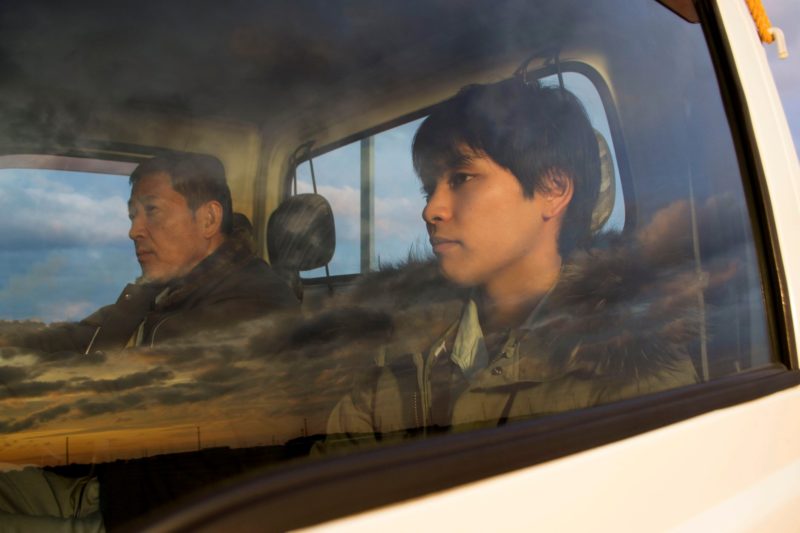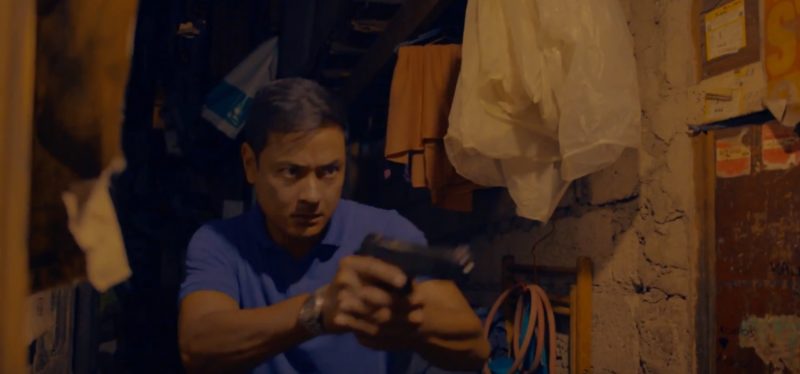Festivals: Busan 2018

His Lost Name
The Busan International Film Festival has crawled from the wreckage of a complex and troubling controversy involving the festival’s connections to a demanding city government, which had provided about half of BIFF’s funding. After the city threatened to defund the festival for screening the political documentary The Truth Shall Not Sink with Sewol in 2014, major filmmakers boycotted the festival, and a few years of internal strife set the organization back significantly. This year, Asia’s most prominent festival has begun the long process of repairing itself. Now with its former executive director and director reinstated, BIFF would like to return to the important work of launching new Asian filmmakers on an international platform.
One of those filmmakers is Nanako Hirose, whose debut film His Lost Name tells the story of two men who essentially adopt one another as father and son, after the older one saves the younger from killing himself. Starring Yuya Yagira as Shin-ichi, a young man taking on a new name to escape his mysterious past, and Kaoru Kobayashi as Tetsuro, a woodworker whose wife and son died years ago in an accident, the film boasts two stunningly sensitive lead performances that prevent its story from straying too far into melodrama. The central question of His Lost Name is whether or not we can mold another into the shape of a missed loved one, and the answer is a resounding and heartbreaking no. Hirose cut her teeth as first the assistant to Hirokazu Kore-eda and then as his first assistant director on Our Little Sister. She has quite clearly learned patience from Kore-eda, as she savors the small moments, the long-held shot, and the slow-burn tension typical of her mentor’s body of work.
Though Hirose’s film is more of a personal drama, a fair number of the films screened at BIFF this year tackled global social issues, like Zhang Wei’s The Rib, a black-and-white double critique of both China and the Catholic Church told through the story of a transitioning transgender woman fighting to retain her relationship with her Christian father and friends, who struggle to understand her identity. Since state and church censors jointly ordered 40 minutes to be cut from the film, there’s no telling exactly how critical Wei’s story was, but the result is a loving portrait of a small trans community banding together against indifference and hostility. Gao Deng’s performance as Liu Mann, a fully transitioned and realized woman, is particularly noteworthy for its tragicomic sensibilities; Liu must sue her employer when they fire her after her surgery, but she is resilient. At times Liu seems inspired by Fellini’s Cabiria as she wanders through the streets with a smile and tears building in her eyes, a woman apart. Wei’s no stranger to crafting ripped-from-the-headlines stories, and The Rib is no exception, but it is a film that suffers from its “firstness”; there is an overwhelming, melodramatic profundity to many scenes, as though Wei and his writers (which includes trans actor Marlo Bernier) felt the need to make their points as obvious as possible.
Though The Rib is a pioneering Chinese film for focusing specifically on the issues of trans rights, it isn’t the only film from China this year to feature a trans character. The reliably subversive Stanley Kwan’s dark comedy First Night Nerves co-stars Kam Kwok-Leung as a transwoman attempting to direct two rivaling actresses in a stage play. It’s a bit of a misstep to cast a man as a trans woman, but Kwan’s intent to normalize this exacting and barbed character isn’t lost in translation. Though at times, it seems like more of a service piece to demystify queerdom—multiple characters are gay or bi—than a cohesive narrative, First Night succeeds best when Kwan allows his characters to fail miserably, but too often he protects them from making bad or interesting choices that would otherwise drive the story forward. In a rare twist, it is the supporting trans character who’s actually the most clearly drawn of them all.
And then there’s Brillante Mendoza’s Alpha, The Right to Kill, which has been dogged by a news buildup surrounding the director’s apparent support for the Filipino dictator Rodrigo Duterte. Many international fans of Mendoza became dismayed by interviews in 2016, purporting that he embraced the administration’s drug war, which became a campaign of murder and fear, but this film, at least, says otherwise. Mendoza’s usual strokes of gritty realism pervade this story about a dirty cop working with a criminal informant to mastermind a drug ring. Yet something about this film carries more than a bit of tenderness, with equal consideration given to both criminals and cops alike, though it becomes clear the audience is meant to mourn the criminal’s plight and nod its heads approvingly at the cop’s. I dare say that despite the infrequent but blunt violence, Alpha is Mendoza’s most empathetic work to date. In 2018, the director went on the record as being “anti-violence and… anti-killing,” offering severe criticism of Duterte, even as he doubled down his support. Alpha certainly reads like an artist attempting to reconcile his conflicting views, but not quite getting there.

Alpha, The Right to Kill
Another director criticizing his homeland at this year’s BIFF was Koji Fukada, though Fukada has been more likely to criticize from abroad. He places Japanese characters in lands that had once been ravaged by Japan and allows them to take in the broader impact of their culture’s history of imperialism and conquest. Fukada’s newest film, The Man from the Sea, imagines a character who embodies the qualities of both Jesus and the grim reaper; he’s a Japanese man who has washed ashore in Indonesia, in the spot where Japan once invaded and occupied the country. The director depicts Indonesia as a land rife with beauty and simple kindness, countering the ethnocentric ideas of Japanese superiority spouted by one of the film’s Japanese characters. While the town scrambles to figure out the mysterious man’s identity, he begins performing small miracles—a girl nearly perishes from heat stroke, but the man conjures a large bubble of water in the air and feeds it to her. Only a Japanese-Indonesian mother and son and their friends and family see the miracles at first. Though it seems like the symbolism here will be overt or religious, Fukada manages to embed more subtle messages about dual identity and classism into the film.
Finally, one of the more fascinating stories out of this year’s Busan revolves around martial arts master Yuen Woo-ping’s Master Z: The Ip Man Legacy, which on the surface is a glossy, entertaining Hong Kong action flick. Also, it’s Hong Kong’s greatest hope for an international and domestic hit that would restore their cinematic legacy. Before the film played on the final night of the fest, a representative from the film thanked the crowd and laid bare the reality that Hong Kong was struggling. That’s an astonishing sight, a film executive directly addressing the audience with a humble request to help them rebuild their industry. Master Z may not break new ground, but it’s a delightful spectacle of 1960s nostalgia—Michelle Yeoh with a bouffant and an attitude, and explosive action set pieces that leave no building intact. If anything, Master Z is possibly the best representation of where BIFF is right now, straddling the past and the present, trying to stage a comeback. Just without all the property damage.
April Wolfe is a writer and filmmaker in Los Angeles. She hosts the Switchblade Sisters podcast on the Maximum Fun network.







